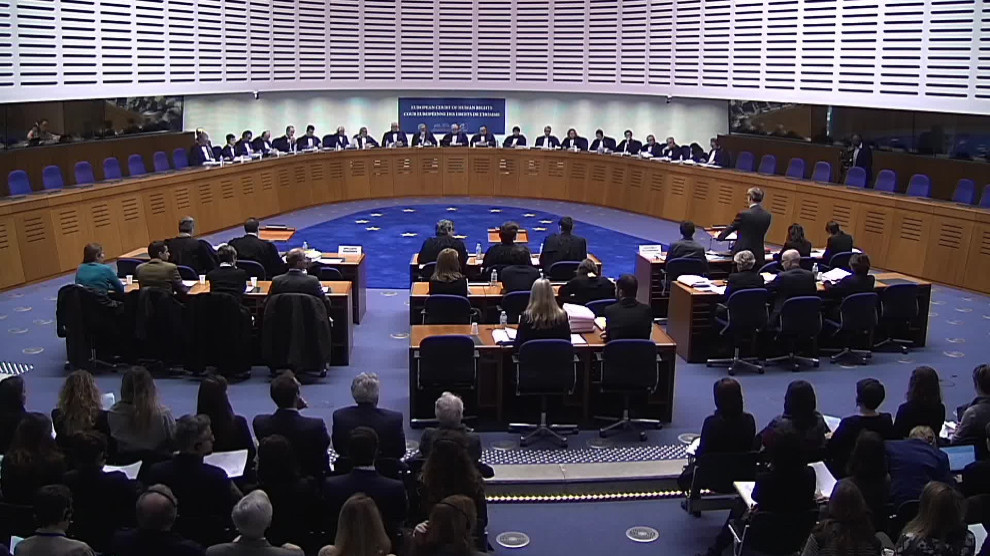ECtHR rules Turkey violated ECHR in the case of lawyers
In 2011 the Istanbul public prosecutor’s office instigated an investigation to detect and reveal the alleged "secret communication channels operating between Abdullah Öcalan and the PKK-KCK".
In 2011 the Istanbul public prosecutor’s office instigated an investigation to detect and reveal the alleged "secret communication channels operating between Abdullah Öcalan and the PKK-KCK".

In today’s Chamber judgement in the case of lawyers Mehmet Ali Kırdök, Mihriban Kırdör and Meral Hanbayat, the European Court of Human Rights held, unanimously, that there had been a violation of Article 8 (right to respect for private and family life, the home and private correspondence) of the European Convention on Human Rights.
In this case the applicants, who are lawyers, complained about the seizure of their electronic data by the judicial authorities for the purpose of criminal proceedings against another lawyer who had shared their Office.
The Court found, in particular, that the seizure of the applicants’ electronic data, which were protected by lawyer-client professional secrecy, and the refusal to return or destroy them had not corresponded to a pressing social need or been necessary in a democratic society. The Court also noted the lack of sufficient procedural guarantees in the law as interpreted and applied by the judicial authorities.
The Court held that Turkey was to pay each applicant 3,500 euros (EUR) in respect of non-pecuniary damage and EUR 3,000 jointly in respect of costs and expenses.
Background
The applicants, Mehmet Ali Kırdök, Mihriban Kırdök and Meral Hanbayat, are lawyers and live in Istanbul. In 2011 the Istanbul public prosecutor’s office instigated an investigation to detect and reveal the alleged "secret communication channels operating between Abdullah Öcalan and the PKK-KCK".
In that context a judge of the Istanbul Assize Court issued an order concerning the activities of Ü.S. (a lawyer), who was arrested the next day at his home. The police conducted searches of the office which the latter shared with the applicants. They made copies of all the data stored on the hard disk of the computer used jointly by all the lawyers, as well as of a USB stick belonging to Ms Hanbayat. A representative of the Istanbul Bar Association and an applicant were present during the search. The data seized by the police were placed in a sealed bag.
Subsequently, the applicants appealed against the order issued by the Assize Court judge both as the representatives of Ü.S. and in their own names. They requested, in particular, the restitution or destruction of their digital data, arguing that those data did not belong to Ü.S., that they were protected by legal professional secrecy and that they had been seized without any relevant order being issued. The public prosecutor’s office submitted observations to the effect that since the data in question had not yet been transcribed, it was impossible to ascertain their precise owners. The Assize Court dismissed the applicants’ appeal on the grounds that the impugned order had been issued in accordance with the law and the relevant procedure.
Relying on Article 8 (right to respect for private and family life, the home and private correspondence) and Article 13 (right to an effective remedy), the applicants complained that legal professional secrecy, which was based on the confidentiality of their exchanges with their clients, had been infringed because the digital files on the latter’s cases had been copied by the judicial authorities during a search and the copies had been seized, even though they were irrelevant to the investigation being conducted against another lawyer. The application was lodged with the European Court of Human Rights on 12 March 2012.